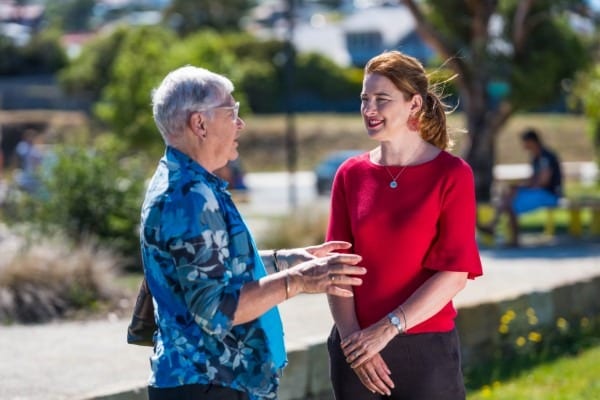The recent elevation of Sarah Henderson to the Senate was widely celebrated as a victory for equality as the Senate achieved gender parity. After being in the minority for 118 years, women finally have an equal voice in one house of Australia’s Parliament.
But behind this headline figure is the sad fact that women in the Liberal and National parties – and therefore the Government of Australia – are still very much in the minority.
New figures from the Parliamentary Library show that in total women make up just 26.4% of the Liberal party’s representatives in Parliament, while the Nationals are doing even worse with just 25% of representatives being women.
These figures, while improving, have not moved substantially in the last decade. What we know from all the evidence is that representation matters for policy making. When women are elected in greater numbers to Parliament, policy outcomes for women improve. But what if the opposite is also true? That when women aren’t represented equally in Parliament, policy outcomes go backward.
If the first few months of the Morrison Government’s new term is anything to go by it seems that is very true. On multiple fronts it is clear the impact of policy decisions on women are being ignored, often wilfully by the Government.
Scott Morrison’s decision to launch a Parliamentary inquiry into Australia’s family law court and install Senator Pauline Hanson as the Deputy Chair is one clear example. Notwithstanding criticism of the Government for initiating yet another review into this area of Australia’s legal system, after largely ignoring the recommendations of reports from the Australian Law Reform Commission and a Joint Parliamentary Inquiry on the same issue, it is deeply concerning for women that Pauline Hanson will be the Deputy Chair of this inquiry.
Senator Hanson’s comment that some women are ‘making up’ claims about domestic violence in Australia’s family law court system was not just offensive it was wrong. The comments will make it far more difficult for women who are survivors of domestic violence to contribute to the Government’s inquiry.
How would any woman feel comfortable talking about her experience of domestic violence in the inquiry setting when the politician sitting opposite them has already said she doesn’t believe them? If Scott Morrison was fair dinkum about exploring the issues in Australia’s family law system he would start implementing the Law Reform Commission report recommendations – a report that is over 500 pages long and spent almost 18 months exploring this issue.
On issues of economic security it seems equally clear the Morrison Government is not taking the views of women seriously. The recent announcement of a review into Australia’s retirement income system was a perfect opportunity for the Government to look seriously at why women in Australia are entering retirement with so much less than men.
But if the terms of reference of the review are anything to go by it is clear women won’t be at the centre of the Government’s decision making.
There was no explicit mention of how to improve outcomes for women in retirement, even though women currently retire with 47% less superannuation than men and 40% of older single retired women live in poverty and experience economic insecurity in retirement.
What’s worse, the Government’s own Senators and Members have already begun cheerleading for voluntary superannuation and a delay to the increase in the superannuation guarantee. It is clear the current superannuation guarantee rate is inadequate and making it more difficult for women to accumulate the savings required for a comfortable retirement.
Delaying the increase to the superannuation guarantee, or worse, making contributions voluntary, will only make this task more difficult for many women. It is hardly surprising the Liberal/National Government would fail to consider the experiences of women in this respect when the review into retirement income is being led by a Treasurer who said in Parliament that the gender pay gap had ‘closed’.
The Treasurer would do well to ask the women who dominate underpaid professions like child care and aged care if they think the gender pay gap has closed.
Meaningful equality for women in Australia won’t come when one chamber of our Parliament achieves equality – it will only come when women are treated equally and considered in every decision that the Government makes. Unfortunately it seems clear this is unlikely to be the case under Scott Morrison’s leadership, especially if women aren’t even at the table making decisions with him.
Australian women deserve better.
Julie Collins is Labor’s Shadow Minister for Women.


